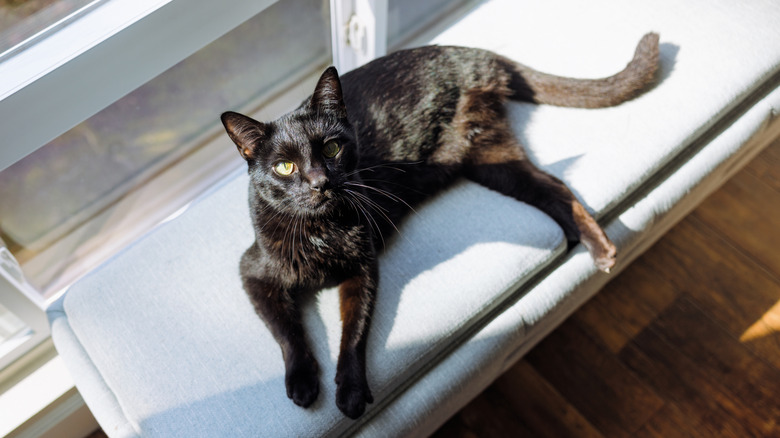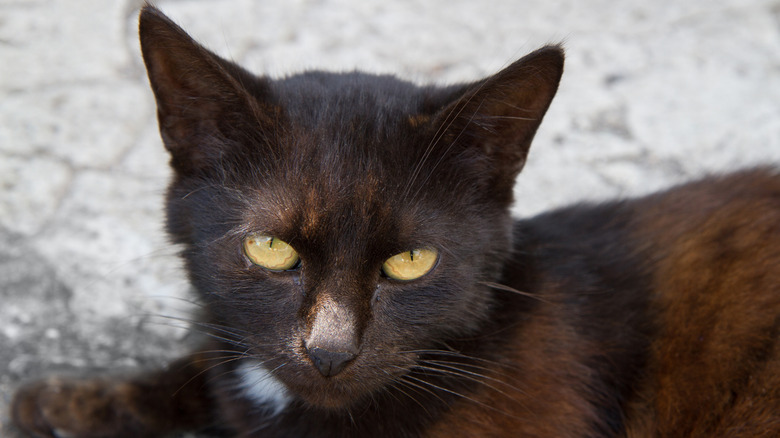Here's Why Some Black Cats Change Color From Sitting In The Sun
Black cats are remarkable for several reasons. They're staples of spooky season, symbols of good or bad luck (depending on who you ask), and associated with witchcraft. In short, black cats are magic. If you own a black feline, first of all, congratulations! Second, you may witness what seems like actual sorcery when they are in the sun and their fur seems to change colors right before your eyes. And it's true that some black cats have coats that actually appear to shift hues in the sunlight. Sometimes, this is referred to as "rusting" because their fur seems to take on a reddish-brown hue.
One explanation for the phenomenon comes from Daniel Mills, a professor of veterinary behavioral medicine at the University of Lincoln, England. "Black cats are not necessarily black," he told Newsweek. "A cat's fur is made of both color and pattern, and when a cat has a coat pattern — even if the color of that pattern is black on black — there can be a slight lightning so that sometimes the cat appears to be slightly off black."
There are actually 22 different breeds of black cats, so there's a lot of genetic variance in their coats. Additionally, just like human hair can change color with extended sun exposure, cat hair can too. The sun may bleach fur by breaking down its pigment, causing that lighter brownish shade.
Is the color change permanent, and does rusting cause issues for black cats?
If your cat's fur appears brown when they lie in the sun but it's due to the composition of their coat, they'll likely look black again when they exit the light. However, fur that's been bleached by the sun will stay that lighter color until your cat sheds it. If your kitty likes to lounge in the window all day or follows pools of light across your floor and basks for hours, there could be lasting changes to those hairs.
Pay attention to sudden, drastic shifts in your black cat's coat color that remain even through lots of shedding. As Celia Haddon, feline expert and author of "Being Your Cat," shared with Newsweek, "We cat owners should take notice if the cat's hair color starts permanently changing as permanent change may be a sign that something is seriously wrong either with their diet or their health." In order to produce the pigment they need to keep their fur black, cats require an amino acid called tyrosine. Tyrosine deficiency can cause health issues that affect a kitty's skin, hormones, mood, cognitive function, and more.
Temporary color variations, rusting from the sun, and slight coat shade changes that come with aging are normal and nothing to be concerned about. But if your cat's entire coat suddenly goes from black to brown, that's when it's time to get them checked by a vet. According to Catster, other symptoms of tyrosine deficiency that may go along with unusual rusting include hyperactivity, excessive vocalizing, problems with their gait, large amounts of saliva, and their tail bending forward. But in general, slight changes in a black cat's coat are just fascinating, harmless occurrences.

